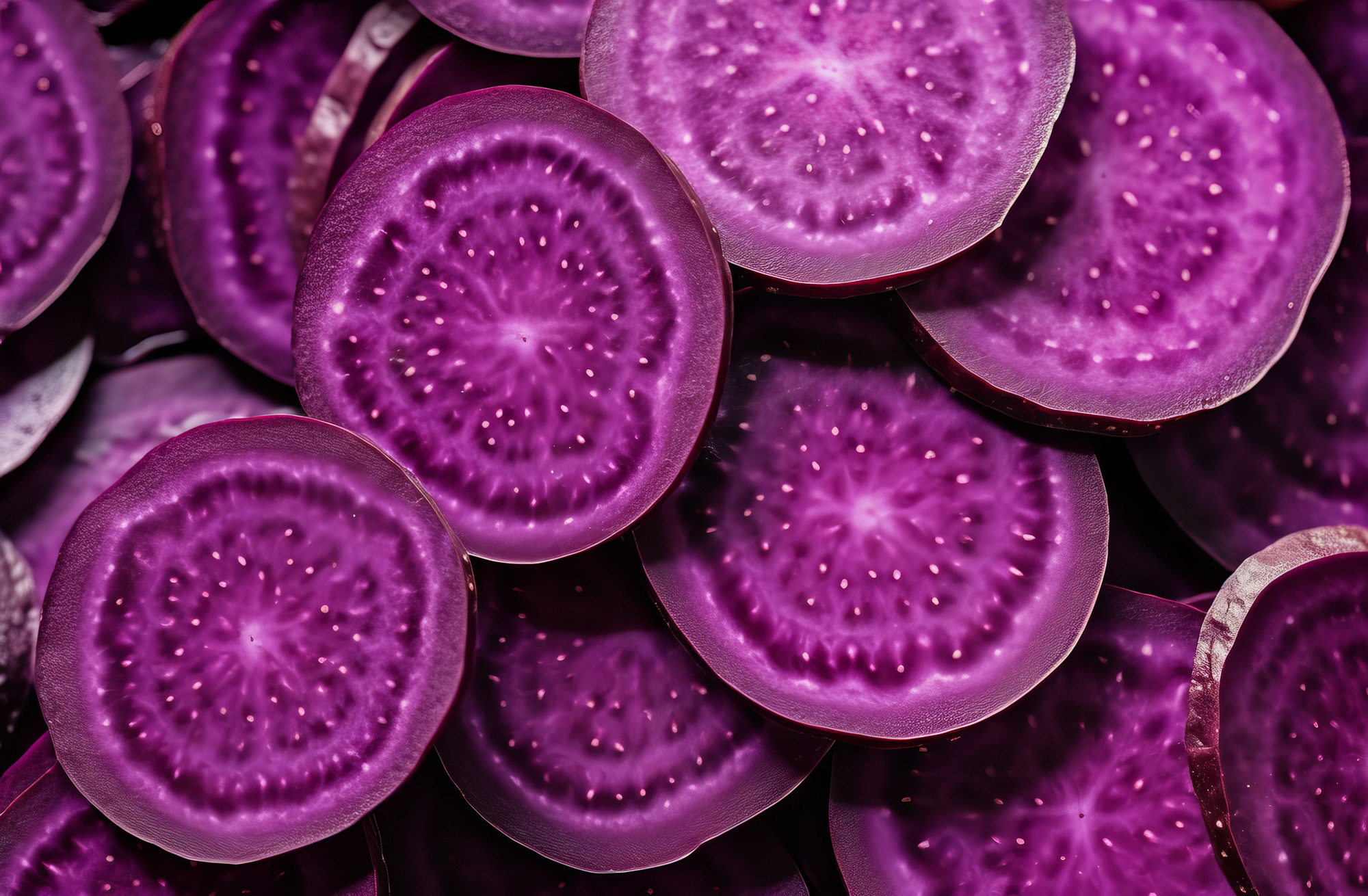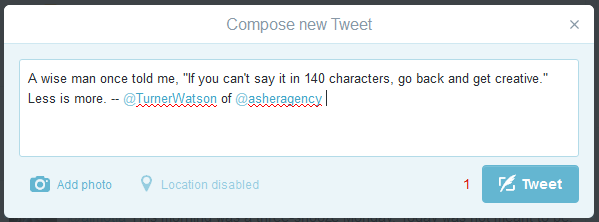Twitter is the primary medium that leaps to mind when I think of creative social-media writing. “But, wait!” you protest. “You’re limited to 140 characters! That includes spaces and punctuation!”
Exactly. Twitter forces the writer to use his or her words as a scalpel, rather than a battle-axe. As a result, each letter is supercharged, and every word packs more punch. Think about your favorite motivational quotes, the phrases that have survived the test of time. How many of those could easily be tweets?
“Ask not what your country can do for you, ask what you can do for your country.” JFK’s famous 79 characters, including spaces.
“Try not to become a man of success, but rather try to become a man of value.” — 76 characters, by Albert Einstein.
“You will not be punished for your anger, you will be punished by your anger.” — Gautama Buddha, also weighing in with 76 characters.
“You don’t want the truth because deep down in places you don’t talk about at parties, you want me on that wall. You need me on that wall.” — Colonel Jessup offers 138 characters.
Twitter (along with the other outlets such as Facebook and the sordid world of YouTube comments) keeps the edge sharp. It forces us to find the best, most creative way to say whatever we have to say. Regarding Twitter, a wise man once told me “If you can’t say it in 140 characters, go back and get creative.” Not enough space to write about the decadent, melt-in-your-mouth, dripping-with-chocolate-fudge cupcakes you discovered in your grocer’s freezer aisle? Tell everyone “It’s like eating pudding with a fork.” (Note to self: try eating pudding with a fork. Sounds awesome.)
Less is often more. Win the game in fewer strokes. 140 characters or fewer. The bullseye is so very small. Stop with all the superlatives and flowery talk and, like the famous three-word tagline says: Just do it.




